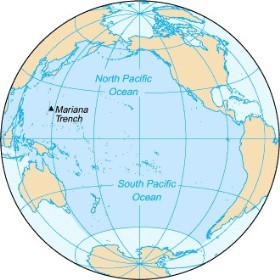Introduction

All of the world’s Oceans contain minerals, weather its salt or potassium or maybe even placer gold, countries have been fighting over the Ocean's resources for ages. Some of these minerals can be found when the water evaporates leaving behind salt or NaCl. But other minerals such as potassium need to be mined for. Most countries even though they have mineral deposits right next to them the rich or powerful countries trying to get minerals from them. But sadly this is the way business works I know the world should be fair but I don't think us as people can do much about it unless we form a group against taking other countries resources.But I still think that the smaller developing countries should have a say about what gets taken from their shores. They could make a fund raising campaign that could help them raise money for mining the probable rich source of minerals around their country.
Atlantic Ocean

Loads of petroleum and natural gas lies under the continental shelves, slopes,the oceanic rises and plateaus of the Atlantic basin. The amount of fossil fuel deposits of this oceon are enormous: some estimates have ranged as high as one-third of the world total for all of recoverable oil and natural gas. The value of these resources represents the vast majority of all of the Atlantic’s nonrenewable resources. Many countries such as Brasil South Africa and America make a huge profit out of this vast amount of minerals. But the developing nations get a part in this too because they can trade something that is very common in their country with one of the richer countries for a mineral or rock that is not so common in their countries, and so bargains can be made and everyone will be happy.
Pacific Ocean

Common salt (sodium chloride) is the most important mineral found in from seawater. Mexico leads the Pacific countries in salt extraction from the sea, mostly by evaporation. Bromine extracted from seawater is used in the food, dye, pharmaceutical, and photo industries. The United States and China lead in its production among Pacific riparian countries. Magnesium, recovered by an electrolytic process, is used in alloys, especially with aluminum; China has become the main site for its production. Also important are the sand and gravel extracted from the shallow sea bottom. I think that most of the big countries such as China, Mexico and The USA are making the most profits her and that maybe they could let other couintries mine in their shores as well because they could make a profit bymaking them pay to mine there but the other developing countries would get a result as well because they would have salt have salt and potassium to trade with other countries and they could make money there too so everyone is happy.
Arctic Ocean

Who owns the Arctic Ocean and any resources that might be found beneath those waters? This question has enormous economic significance. The United States Geological Survey estimates that up to 25% of the world's remaining oil and natural gas resource is within the seabed of the Arctic Region. Significant quantities of other mineral resources might also be present. Control of Arctic resources is can be of great economical benifite. These resources become more accessible as global warming melts the sea ice and opens the region to commercial navigation. The US and Russia are the two biggest countries fighting over the wealth of minerals in the Arctic because there are a load of non-renewable resources which are rapidly diapearing. But I also think that mining in the arctic area could cause a lot of pollution and that would be really bad for the environment.
I agree with you on your last statement. I don't think we need to dig up more oil, imagine when it is burned it can't be turned back into oil so when it is gone, it's simply in the atmosphere causing more warming.
ReplyDelete